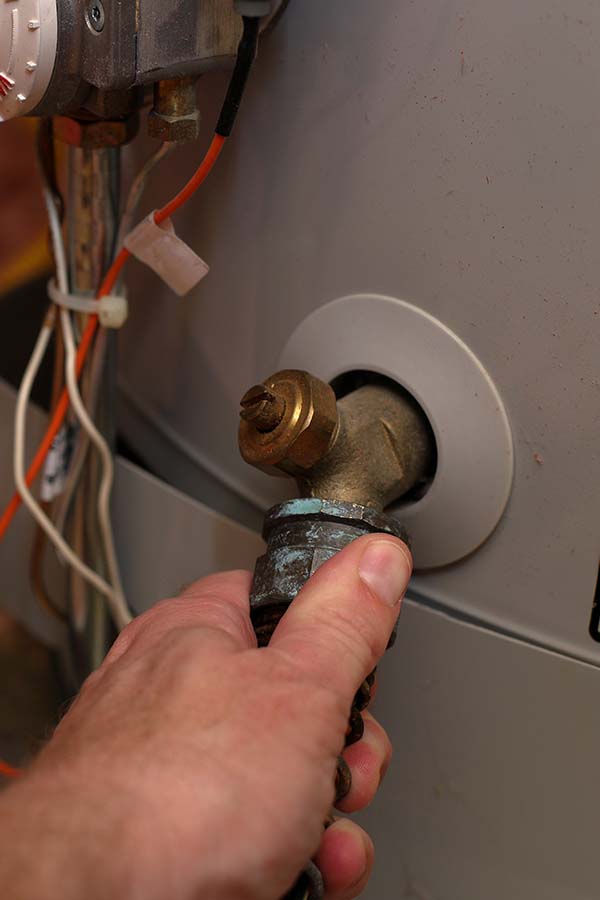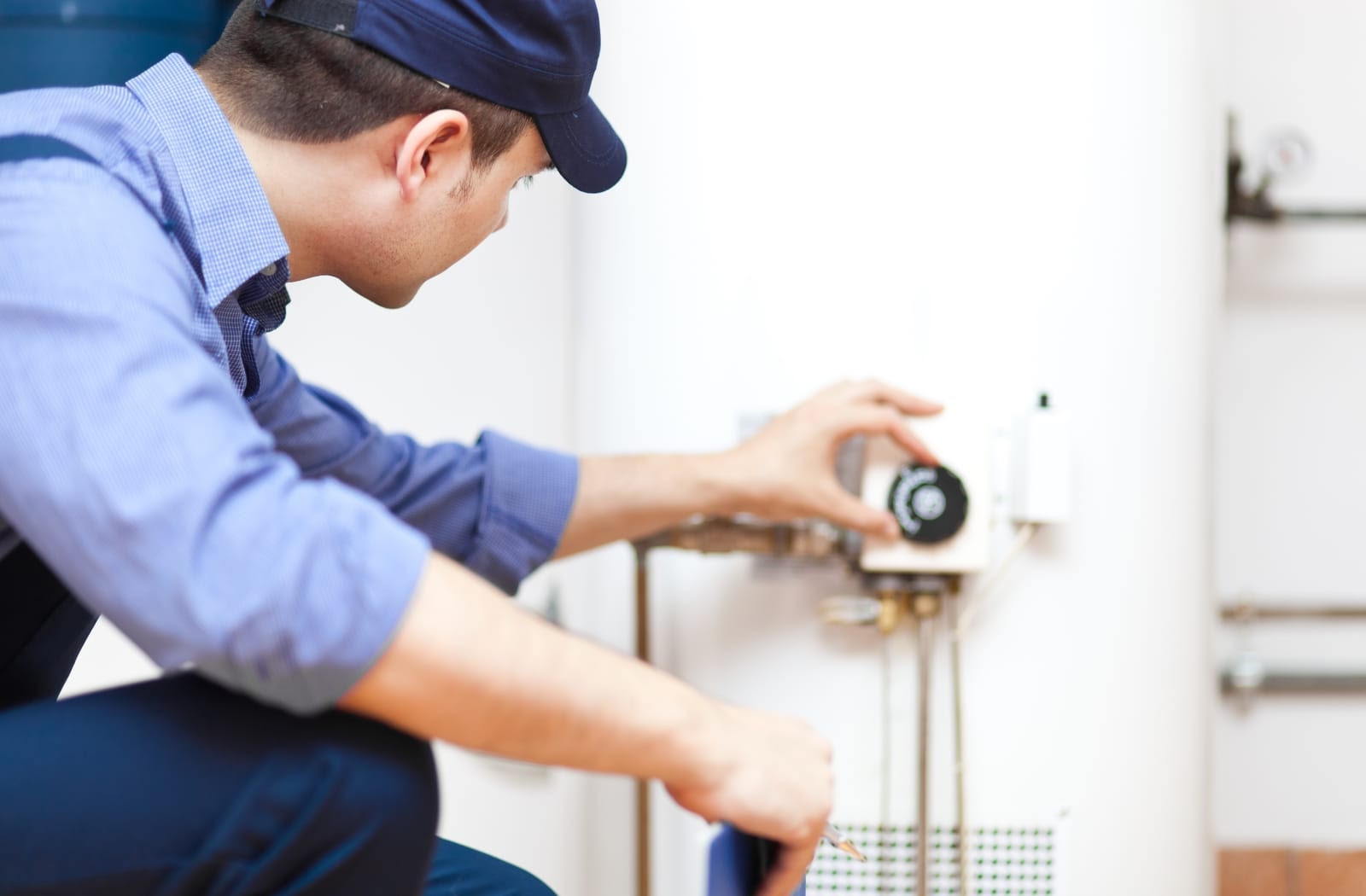You rely on your water heater nearly every single day. Whether you’re showering, washing clothes, or watching dishes, your water heater is likely doing a lot of the leg work. But how much do you know about your water heater? If repairs are needed, you want to know what’s going on before calling a professional for help.
Today, we’re going to take a look at some of the most common water heaters Canadian houses have, how they work, and what you should check first if your water is starting to become colder, dirtier, or even smellier.
So, at the risk of making an easy pun, let’s dive in!
Storage Tank Water Heaters
Storage tank water heaters are the most common types of water heaters found in North America. The system is simple, lasts for years, and is pretty reliable for delivering all the hot water you could need. The catch here is that eventually, you can run out of hot water since it can store only so much. If you have a big family who all like to take showers in the morning, you might want to wait a couple of minutes before hopping in yourself.
How Do They Work?
Storage tank water heaters store water at a certain temperature until you turn on a hot water faucet. But before you can demand hot water, it first needs to go through a series of steps:
- Water is brought into the tank through a dip tube, a specific pipe that pushes cold water to the tank’s bottom.
- Once the water is brought in, it’s heated by a gas burner or an electric heating element. Exhaust from the gas is led out through a gas chimney, ensuring no fumes are leaked into your home. The chimney also heats the water throughout the tank.
- As hot water heats, it rises to the top of the tank, allowing another pipe, known as the heat-out pipe, to travel the water around your house for instant access.
Now, these are the basic steps to getting hot water whenever you need it. But there is a variety of safety and health precautions installed in the tank to ensure it’s working correctly and delivering clean, drinkable water:
- An anode rod is installed in the tank to collect corrosion the water might cause. Too much corrosion can damage the tank and lead to leaks.
- A temperature and pressure relief valve is installed into every unit to ensure the tank doesn’t explode due to high pressure.
- Finally, the tank is also designed with a drainage valve, helping you drain out water if it needs repairs.
All water tanks include a thermostat, allowing you to control the water’s temperature.
How to Spot Problems
Hot water heaters can experience a range of problems if they aren’t maintained properly. 2 of the most common issues are a lack of hot water or a leaky water tank.
If you have no hot water, there may be a chance that:
- Your gas burner is off and needs relighting.
- Your heat-out pipe is broken and unable to transport hot water.
- The water heater’s breaker has shorted.
Water heaters can start to leak if:
- You have a loose drain valve
- Your water heater has cracked
- There is too much pressure inside the tank
For any of these issues, we recommend speaking to our professionals first. Even if you’re confident in your handyman abilities, repairing your water heater on your own could result in more damage.
Tankless Water Heaters

If you’re looking for an endless supply of hot water, then a tankless water heater might be the best option for you! These tanks cut water storage out of the equation, reducing the risk of corrosion build-up and lessening the need to heat and reheat water over time, potentially saving you energy.
While whole-home tankless water heaters are available, some might elect to install smaller tankless water heaters around the house.
How Do They Work?
Tankless water heaters are also known as on-demand water heaters since they heat water exactly when it is needed. This system works seamlessly and can provide a seemingly endless supply of hot water.
- Water flows into the water heater through an inlet pipe.
- A gas heat exchanger or electric-powered elements in the pipes then heats the water as it travels through the tank.
- The water flows out of the tank, ready for use around your home.
Because the heater does not store any water for a long time, a tankless water heater does not need an anode rod to prevent corrosion. However, it does come with a pressure relief valve as well as an exhaust chimney and fan to lead toxic fumes out of your home.
How to Spot Problems
While tankless water heaters are incredibly durable and long-lasting, they can experience a range of issues if they aren’t maintained properly. Some of these issues include (not surprisingly) a lack of hot water or “cold water sandwiches.”
Since the former is caused by similar problems that happen to storage tank heaters (i.e., breaker shortages, extinguished pilot light, etc.), let’s take a closer look at the latter.
Cold water sandwiches are exclusive to tankless heaters and occur when a blast of warm water comes out of your faucet first, then a few moments of cold water, followed by a steady flow of warm water again. This problem may be exacerbated if you have a longer pipe system in your home, making it feel as if your water temperature is constantly fluctuating.
To remedy this, you can:
- Inspect the gas line to make sure it matches your water heater.
- Check to ensure no cold water pipes crosses over the hot water pipe somewhere in the system.
- Get help from a professional to inspect or even clean the tankless water system.
How to Maintain Your Water Heater
While installations and repairs will need the help of a professional to ensure it’s done correctly, you can perform some basic maintenance to help ensure the tank continually performs its best.
Please, take a look at our complete guide to basic hot water maintenance and get your feet wet in the world of water heaters. If you’re not sure if maintenance can solve any issues you’re experiencing, be sure to call our team. We can help diagnose the issue and get it Fixed Right, or It’s Free!
